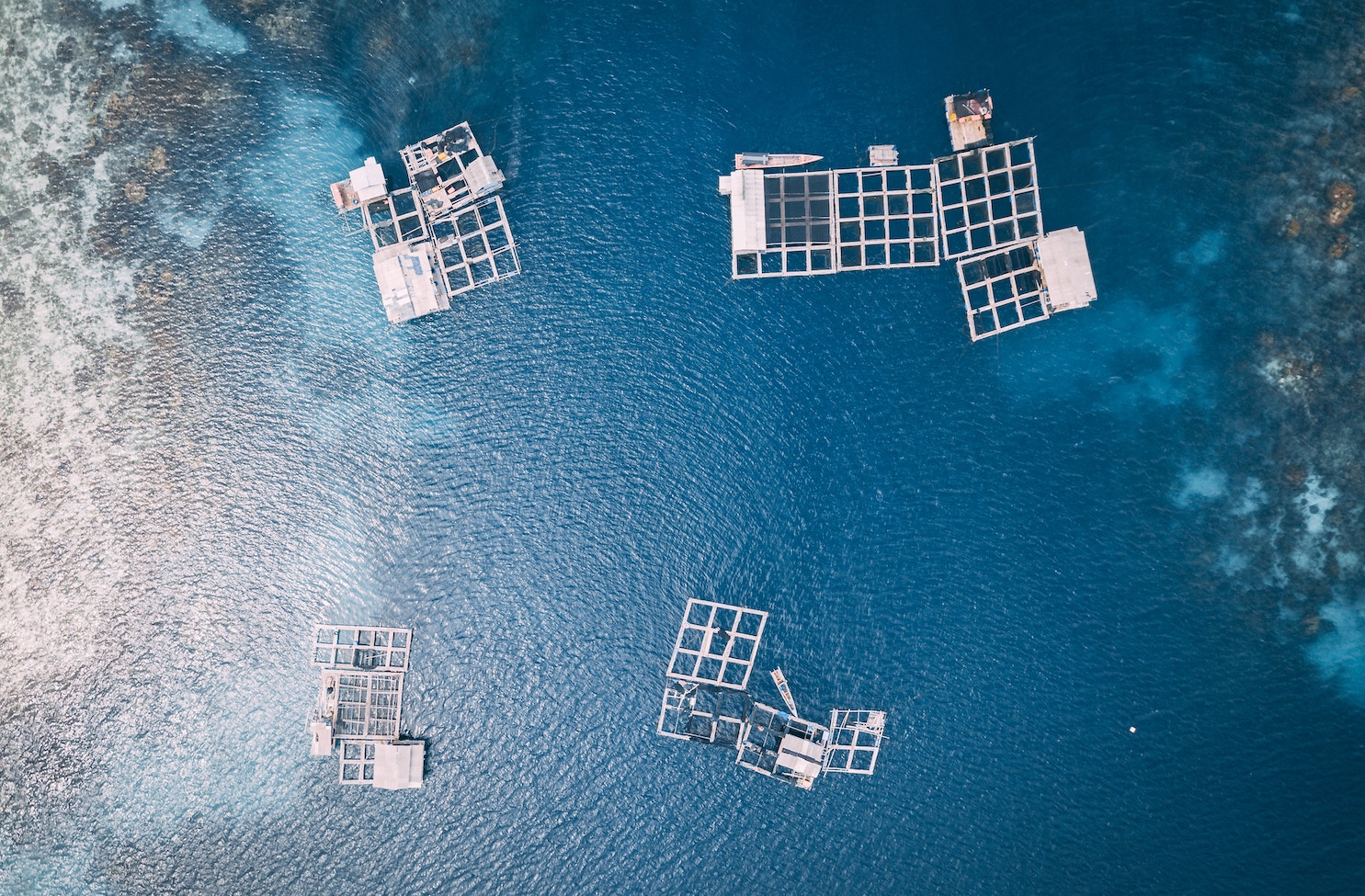Greetings, Agents of Impact!
Impact Voices: Pass the Mic
Investments in sustainable aquaculture point to a greener ‘blue economy.’ For farmed fish to provide a growing share of the world’s protein, the industry’s got to clean up its act. The best of the new ventures raising seafood on land and at sea showcase how impact investors in alternative sources of feed, improved containment systems and disease prevention are laying a more sustainable foundation. The Nature Conservancy has urged impact investors to “steer the future of the industry by directing investments toward the most sustainable forms of aquaculture.” Capital is finally beginning to flow, with $385 million in aquaculture venture investments since 2017. Aquaculture ventures make up half of the ventures in the Fish 2.0 accelerator and investor network that will award winners in November. ImpactAlpha’s “Financing Fish” is documenting the accelerating dealflow. In a guest post, Launch Capital’s Anthony Bellafiore rounds up investment themes and promising ventures. Investors such as Aqua-Spark, SOSV, Alimentos Ventures, and even Sand Hill Road powerhouse Kleiner Perkins “have an opportunity to flex their impact muscle,” Bellafiore writes.
Farm-raised fish already accounts for half of global fish consumption, with an expected market share of 75% by 2030. Companies such as KnipBio and NovoNutrients are using microbes to convert ethanol and CO2 into single-cell proteins to replace fishmeal. Hexafly, Entocycle and Grubbly Farms are creating fishmeal from insects. BlueLice and Stingray Marine Solutions are developing traps and lasers to kill parasites and reduce diseases that cost the industry an estimated $10 billion per year. Firms like Boston-based Innovasea are focused on open-ocean containment nets and other infrastructure. The success of alt-protein suppliers like Beyond Meat and Impossible Foods is spurring Good Catch and Ocean Hugger Foods to develop plant-based seafood alternatives and BlueNalu and Finless Foods to grow cultured fish meat from stem cells. Meeting Sustainable Development Goal No. 14 means more investable solutions to overfishing, warming seas, plastic pollution, coral bleaching and other ocean challenges. “The entirety of the Blue Economy is set to drastically increase in value over the coming decades,” Bellafiore writes. Sustainable aquaculture solutions already are.
Keep reading, “Investments in sustainable aquaculture point to a greener ‘blue economy,’” by Anthony Bellafiore on ImpactAlpha.
DealFlow: Follow the Money
OkCredit raises $67 million to bring digital services to India’s small shops. Serving small and informal businesses worldwide has grown beyond microfinance institutions. Tech startups, like Bangalore-based OkCredit are rolling out products and services for the long-neglected small businesses that employ 70% of emerging economy workers and account for 30% of emerging-market GDP. The company’s bookkeeping app helps India’s small shop owners to track purchases, sales and expenses. Its four million monthly active users represent a three-fold increase since June, when it raised its $15.5 million Series A round. OkCredit’s fresh $67 million Series B, from Lightspeed and Tiger Global, underscores the growing recognition of untapped opportunities in the informal and small retail sector. Investors have also backed India’s Peel-Works and ShopKirana and Mexico’s Frogtek, which are similarly supporting small shop owners. Check it out.
North Sky Capital closes $220 million sustainable “secondaries” fund. The private equity firm’s Clean Growth Fund V will buy out investors in other private equity funds that are looking for liquidity. Key sustainability sectors: energy, water, transportation, consumer goods, health and aging.
Ewa Capital launches $30 million fund to promote gender inclusion in Latin America. The women-led venture firm, started by Mountain Nazca Colombia’s Patricia Saenz and Elevar Equity’s Paula Arango, invested in eight startups through its first fund. Now Ewa is zeroing in on companies trying to close the region’s gender gap.
Truman’s raises $5 million for eco-friendly household cleaning products. The Kentucky-based company makes non-toxic cleaners and sells its ultra-concentrated solutions in small cartridges to reduce packaging. German chemical company Henkel led the round.
Signals: Ahead of the Curve
After light bulbs and plastic straws…toilet paper. Another everyday staple is under scrutiny. “The Issue With Tissue” from environmental watchdog NRDC details the environmental and social harm wrought by Procter & Gamble, Georgia Pacific, Kimberly Clark and other tissue paper producers. Their preference for virgin pulp means the clear cutting of global forests needed for carbon storage and habitat for animals and people. The NRDC’s sustainability scores: Charmin Ultra, a leading brand owned by P&G, failed, as did with Quilted Northern and Angel Soft, both from Koch-owned Georgia Pacific. Scott from Kimberly Clark notched a slightly less dismal ‘D.’ (Note: P&G CEO David Taylor is a signatory to the Business Roundtable’s recent statement on the purpose of corporations.)
- Flush market. The average American uses three rolls of toilet paper a week, accounting for 20% of global tissue consumption and $31 billion in sales a year. Globally, consumption is expected to rise 6% a year.
- Climate threat. Canada’s ancient boreal forest, the “Amazon of the North,” holds softwood pulp prized by makers of tissue products for the U.S. market. Clear-cutting releases about 26 million metric tons of carbon dioxide a year. That’s 12% of the annual emissions Canada agreed to cut by 2030 under the Paris Agreement.
- Alt tissue. Alternatives to the “tree-to-toilet” pipeline include recycled content or sustainable fibers such as wheat straw and bamboo. The Forest Stewardship Council’s certification aims to mitigate the harm from virgin pulp harvesting. The NRDC gave A grades to toilet paper from companies including Green Forest, Natural Value, and Seventh Generation based on recycled content, bleaching process and fiber sourcing.
- Share this post.
Agents of Impact: Follow the Talent
MIT’s Ernest Moniz, Rockefeller Foundation’s Rajiv Shah, and Africa Development Bank’s Akinwumi Adesina will co-chair Rockefeller Foundation’s new Global Commission to End Energy Poverty. The MIT Energy Initiative is supporting the commission and released an initial report on bridging gaps, primarily in sub-Saharan Africa… Building Markets is looking for a financial consultant in Myanmar… Amsterdam-based impact investor Triple Jump has an opening on its fund investment team.
Thank you for reading.
– Sept. 16, 2019











